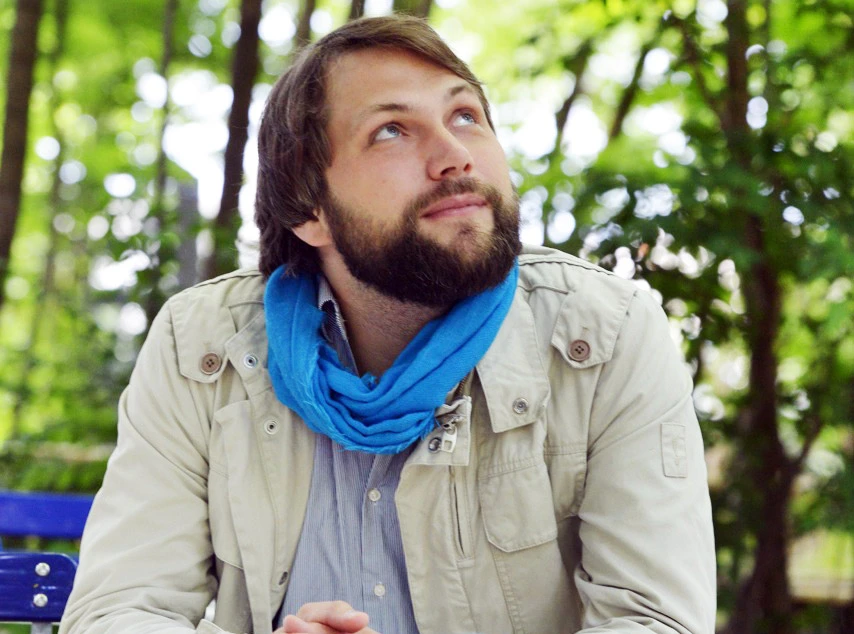Taking a break from the digital bombardment
Psychologists from Adlershof have developed a downtime app
Two thirds of German people are accessible almost anytime and anywhere via smartphones, internet, and social media. Digitalisation has resulted in an accelerated flow of information – and permanent stress, whether at work or beyond. For this reason, a company founded by psychologists of the HU in Adlershof has developed a downtime app.
Visitors of the overflowing cafeteria of the Betahaus in Kreuzberg do not make it look like work and leisure are two separate categories. Job projects are planned over cappuccino and bagels. The co-working space on Moritzplatz offers young start-ups from the digital industry a space for relaxed networking and hard work – the noise level is reminiscent of a buzzing bee hive.
Alexander Steinhart and his colleagues from the company Offtime have rented some desks here. They commute between Betahaus and their offices in Adlershof, where everything started as a university project at the department run by Annekatrin Hoppe, a psychologist of work. At first glance, their business model is diametrical to that of the digital hipster: founded in 2013, the start-up’s app wants to help “find a breathing space in a hyper-connected world”, as they put it on their website. From his own experience, Steinhart knows that especially the technology-focused crowd appreciates the use of an app to temporarily disconnect certain services. Muting new messages from WhatsApp, Facebook, and Twitter, as well as e-mails and calls, enables us to concentrate on the essentials, professionally and privately. Over coffee in the noisy cafeteria, Steinhart says: “We want to offer a tool to reduce distraction.”
Nowadays, some users check their smartphone more than 60 times a day – “mostly due to boredom, but then they are stuck for hours in the virtual space,” says Steinhart. The psychologist sees similarities to other addictions. A like on Facebook, a retweet on Twitter, all this directly affects the brain’s reward centre – and tempts users to produce more feedback. In Steinhart’s opinion, the fact that many users are unable to stop due to the overwhelming number of digital platforms, shows that there is lack of understanding: “In the beginning, the internet and digital media created many advantages: we could access information faster and communicate more easily by being connected.” However, this connectedness has reached an extent that “requires a discussion on the right usage.”
Putting the phone in flight mode to avoid being disturbed is not the solution, says Steinhart. “It’s no use pitting offline and online against each other.” The Offtime app aims to offer a realistic third way: the user can select specific apps and services to turn off and make sure to be available for his or her boss, or children. It offers mechanisms to give a warning when somebody is getting lost in reading e-mails or surfing the web.
The young company has already attracted 100,000 active users worldwide. The app is available in several languages for the Android operating system and as a light version for iOS. The goals of its users are manifold: some are just technology nerds, others want to use digital services in a more conscious and balanced way, and still others hope to avert a looming internet addiction.
Steinhart sees significant demand for research on the consequences of digitalisation. “It is naïve to think that the next generation will learn to master this excess on its own.” The public debate is moving in the wrong direction at the moment: Steinhart criticises the industry for implying, especially to young people, that “they are out, if they don’t use this or that application.” “We are at the beginning of the fourth industrial revolution: the pivotal issue is not the work-life balance, but the work-life-tech balance.”
By Claudia Wessling for Adlershof Journal
